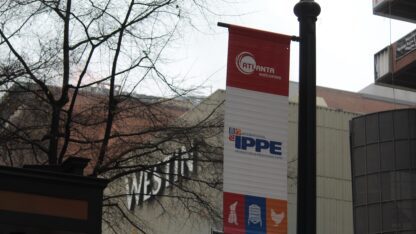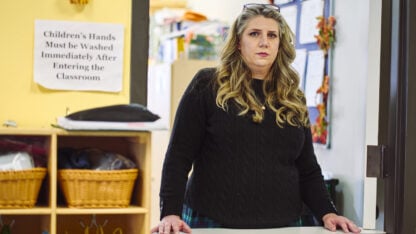Hundreds Of Georgia College Professors Are Concerned About Reopening Campuses This Fall
Some local private colleges — like Morehouse, Spelman, Clark Atlanta University and Agnes Scott College — have decided to start the school year remotely due to the coronavirus pandemic. However, Georgia’s public colleges and universities plan to hold in-person classes this fall.
That has some professors concerned about whether campuses can reopen safely.
Hundreds of faculty members at schools like the Georgia Institute of Technology and Georgia State University have signed letters to university system officials. Among their requests, they’ve asked that remote learning be the primary mode of instruction at Georgia colleges this fall.
Georgia has now surpassed 170,000 reported COVID-19 cases. Fulton County, where Georgia Tech and GSU are located, currently leads the state in cases.
“I’m very concerned with the students being invited back to campus with, I think, false assurances of safety,” said Janet Murray, a professor of digital media and associate dean for research in the liberal arts at Georgia Tech. “I don’t think that we can do the kind of measures that are needed in order to really control the pandemic on campus to a sufficient degree.”
Murray can teach her classes remotely, but she’s worried about others who can’t. At the same time, Murray said her coworkers at Georgia Tech have worked hard to ensure safety for those who need to be on campus.
“I’ve been very inspired to see my colleagues coming up with new kinds of testing methods,” she said. “[They’ve taken] a research lab and made it into a clinically certified lab in order to do testing. I mean, they’ve been heroic efforts in science and engineering.”
For Robert Maxwell, returning to campus is complicated. The Georgia State University biology professor is teaching a microbiology class this fall. It has a lab that Maxwell says really should be done in person.
“The students need to come in and actually learn how to work with organisms in a safe environment,” Maxwell said.
He has rearranged the space so that students can keep a social distance. Still, Maxwell said some of his students aren’t comfortable coming back to campus yet, so they dropped the class. His other classes will be online this fall. He says GSU has done what it can to minimize risks to students and staff. But he’s not sure if it will be enough.
“In science, when we don’t know something, we want to run a controlled experiment,” Maxwell said. “And in the biological sciences, we want to make sure we’ve mitigated as many risks as possible, especially when we’re dealing with human subjects. And it just feels like there are so many people willing to accept risks that as a researcher, I would never be willing to accept.”
Maxwell said schools and university system officials need to listen to faculty and students’ fears about face-to-face instruction.
“If a teacher is forced back into a class where they don’t feel safe, are they going to be [an] effective teacher?” he said. “If a student is being forced back into an environment where they don’t feel safe, are they going to be an effective student?”
The University System of Georgia did respond earlier this month to pressure from faculty to require students, staff and visitors to campuses to wear face coverings. However, 24 of Georgia’s public college and university presidents signed a letter published last week, urging their school communities to support in-person learning.
“Resuming in-person classes this fall will be a difficult but important task, and it is one we are committed to achieving, as it serves the best interests of our students and the State of Georgia,” the letter says in part.
Some colleges are allowing professors to choose to teach remotely if possible when classes resume next month.








